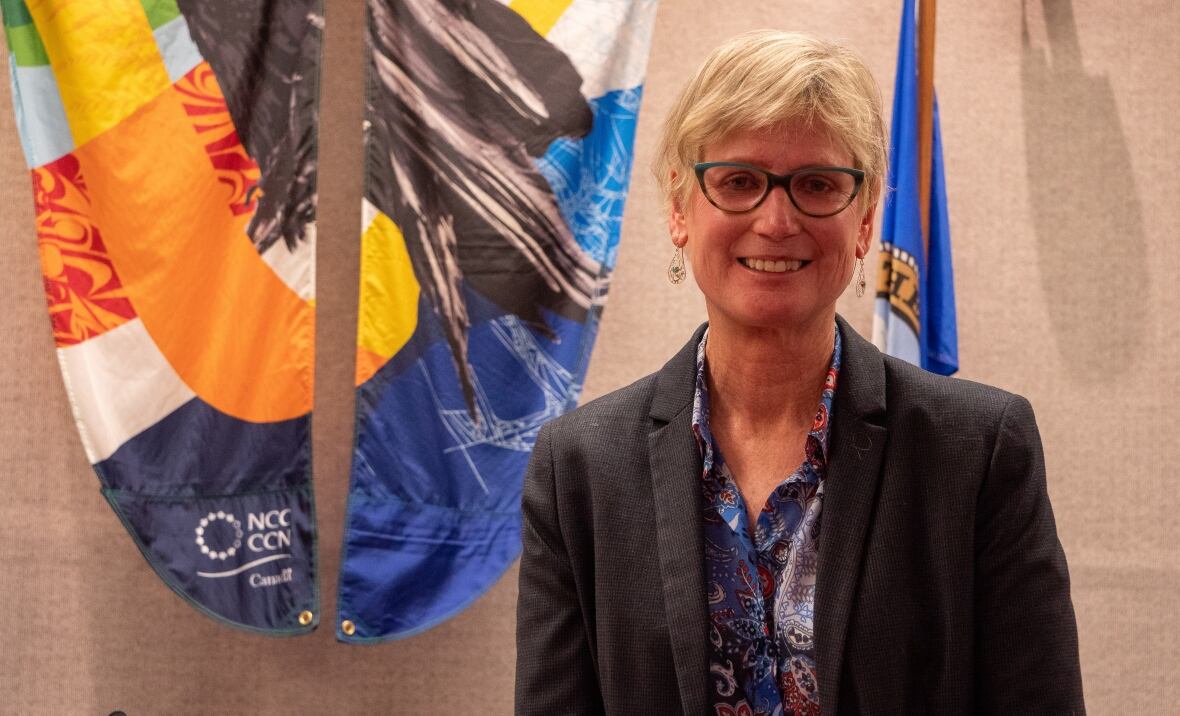Whitehorse city council approves 4-year, $130-million capital budget
The budget covers projects from 2022 to 2025

Whitehorse's city council approved a four-year, $130-million capital budget that sets aside funding to infrastructure projects including buildings, roads, the Whistle Bend pond and downtown streets.
Mayor Laura Cabott said the budget allows the city to expand, keep up with citizens's demands and stay on track to tackle climate change.
"There are very few cities in Canada that would ever have this opportunity to do what we're trying to do here," said Cabott.
"When you look at this budget, there is very little that is new. We're not spending gobs of money on new things. The infrastructure that we are investing in is here already. It's in good shape, but it needs attention," she said.
The capital budget plan comes with an asterisk, however: the city will need money from the Yukon government and the federal government to make everything happen. The city will also be taking $30 million from its reserve funds for this budget over the four years.
Among the various infrastructure projects, the capital budget includes at least $14 million in upgrading and retrofitting the Mount McIntyre Recreation Centre to make it more energy efficient. It also includes renovating the former transit building on Tlingit Street, and for the construction of a new building at the Robert Service Campground.
Some technology-based projects, such as the city fiber optic network expansion and a parking mobile app, also received funding.
Near unanimous vote

Ted Laking was the only city councillor to vote against the budget.
He said he supported many of the expenditures but ultimately voted against it because of the increased funding for the cost overruns related to the city hall project.
He said he's heard a lot of "frustrations associated with what is seen as out of whack spending priorities by the city."
The project to renovate city hall has risen from $9.7 million in 2014 to the recent $26.2 million estimate.
"There are a number of residents in the city who have yet to see a snowplow on the road this year or this winter, and they see us going forward with a project that seems to be increasing in cost significantly over and over. So, it is for that reason that I have to vote against this budget," Laking said.
Coun. Jocelyn Curteanu was quick to reply to Laking's remarks.
"I agree it's very frustrating to see costs rise so much over time. But that's the reality, costs rise for a variety of reasons," said Curteanu, who is currently serving on her second term as councillor.
Curteanu also pointed out that snow clearing and infrastructure projects fall under different budget categories and these can't be interchangeable.
Public input higher than usual
During the meeting, Cabott noted the city received a significant amount of public input compared to previous budgets. In total, there were 11 emails submitted to the city and six delegations addressed council.
Ten submissions encouraged the city to focus on infrastructure development to support the climate change emergency and encourage safe, active transportation.

Most of the input about active transportation requested the inclusion of cyclists in the conceptual design of new infrastructure projects, a clear timeline for the completion of the bicycle network plan, and increased awareness of the city's bike-friendly approach.
"Some of that isn't going to get addressed in this capital budget, but I'm hoping it will in the next," said Cabott.
According to the report presented at council, only two submissions were supportive of the new city hall and transportation hub.
The input report reads, "the new city hall has been designed to repurpose as much of the existing building as possible with a focus on energy upgrades to reduce corporate greenhouse gas emissions."
"I really look forward to shovels in the ground and getting some of these projects underway once the snow is melted," said Cabott.
Corrections
- This story has been updated from a previous version that said the city's four-year capital budget was $52 million. The budget is, in fact, $130 million.Jan 19, 2022 11:53 AM EST